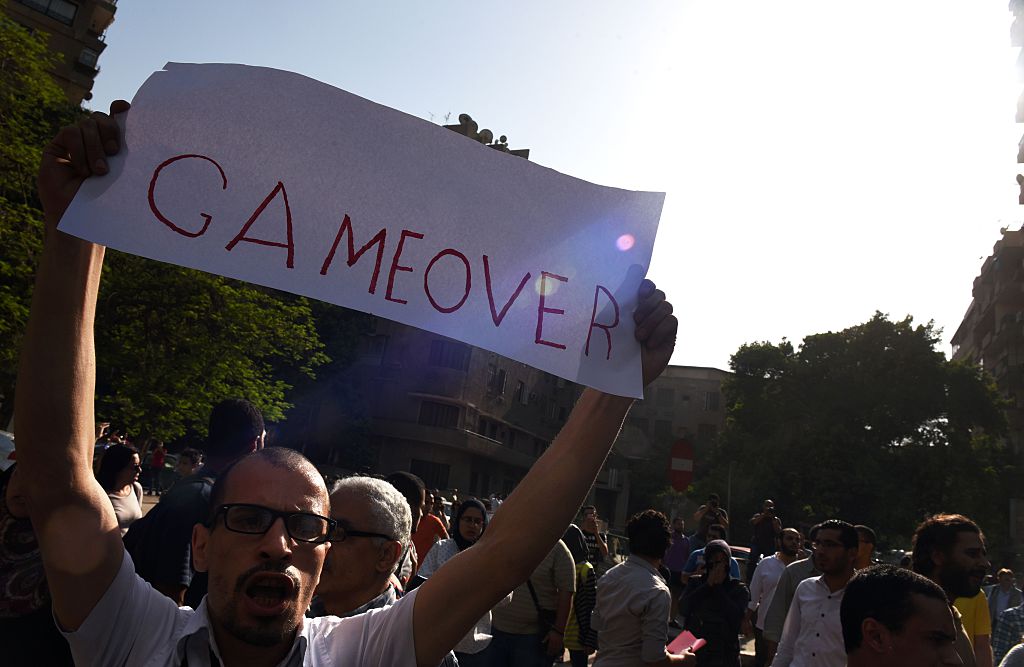Egypt’s government is paranoid, fearful that the unrest that ended Hosni Mubarak’s rule in 2011 could once again rear its head. Back then, Egyptians took to the streets in imitation of those demonstrators in Tunisia. Now, the country’s rulers fear that events further afield, in France, could be a catalyst for change. Preventing another rebellion, this time with a “French flavour”, is the central concern of the country’s government. But rather than placate people with much-needed reform, the response from the Egyptian state has been simpler: banning the sale of yellow vests.
Shops have been told not to sell hi-vis jackets to one-off customers. Restrictions have also been placed on wholesalers seeking to purchase the vests for use on building sites in a bid to prevent ‘yellow fever’ taking hold in Egypt. The country’s regime, headed up by president el-Sisi, is right to be fearful of change. Nearly a quarter of Egypt’s 100m people are illiterate, poor and, in the eyes of the government, easily manipulated by political Islamists. This has led el-Sisi to believe that totalitarianism is the only effective ruling mechanism for safeguarding national sovereignty. Tens of thousands of people have been locked up. And in the election earlier this year, to nobody’s surprise, el-Sisi won a second term with 97 per cent of the vote.
But while el-Sisi is unassailable at the ballot box, the country’s young population (those under 30 account for two-thirds of Egyptians) remain frustrated. Youth unemployment is around 42 per cent and there is a feeling of anger among a generation whose optimism at Mubarak’s fall was quickly dashed. The move to ban yellow vests to prevent copycat gilets jaunes-style protests on the streets of Cairo reveals the fragility of the ruling regime. It also sums up the approach of the Egyptian state: to deal with symbols and ignore the real source of the country’s problems. Meanwhile, Egypt’s state media disseminates false propaganda about the regime’s achievements, hiding the fact that miserable living conditions and clear economic deterioration are the triggers that could induce Egyptians to revolt again.
El-Sisi himself is a big part of this problem: We would only have realised 25 per cent of our current achievements if we had been guided by feasibility studies, he recently declared in an attempt to demonstrate that his gut feelings are more valuable than expert opinions. The president, who also has an unhelpful tendency to criticise his people’s bad habits of being overweight, clearly blames Egyptians for their failures. In contrast, he presents himself as an inspiring icon whose ideas and behaviour must be adopted and emulated without question.
But the reality of el-Sisi’s success is rather different: foreign investments are declining in Egypt. Egypt’s tourism industry is also in dire health: the number of foreign visitors dipped sharply from around 15m in 2010 to 5.4 million in 2016. The new capital city project that Egypt wants foreign nations to fund has recently confronted another setback: a Chinese firm withdrew its initial offer to invest twenty billion dollars in the project.
Amidst these failures, the Egyptian state also fails to offer a clear national vision that could inspire its citizens or an economic policy that could encourage them that the future could be brighter. Instead, as the ban on yellow vests seems to show, the government is more focused on petty attempts to limit the freedom of individual Egyptians. The state’s totalitarian approach, combined with widespread corruption and a poor legal setup, creates an environment in which cronyism and unfairness continues to flourish.
El-Sisi’s supporters claim that Egypt needs a strong leader like him to thrive. But it’s clear that, for many Egyptians, prospects are bleak. Decent economic conditions don’t exist, and nor, too, do some basic freedoms. The imprisonment of state critics and the imposition of totalitarian rule have also been pitting Egyptian citizens against the government. For Egyptians fed-up with the status quo, it’s no surprise that events on the streets of Paris are something of an inspiration. But while yellow vests have been banned, the discontent that many Egyptians feels simmers not far beneath the surface.
Mohammed Nosseir is based in Cairo and was formerly a member of the executive office of Free Egyptian Party. He tweets @MohammedNosseir






Comments